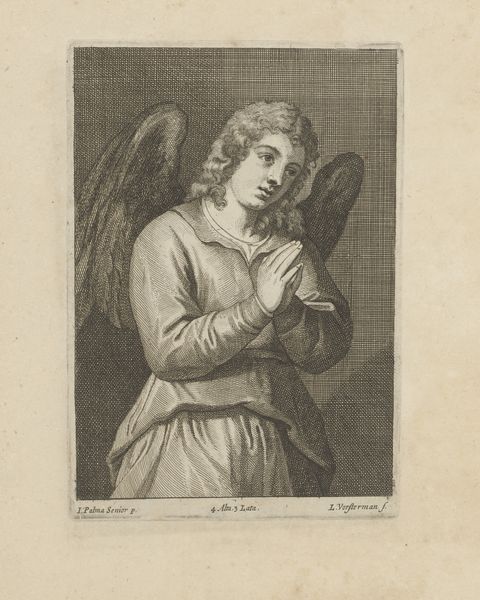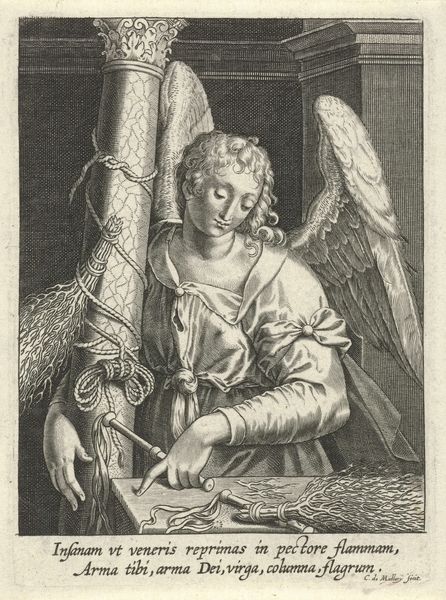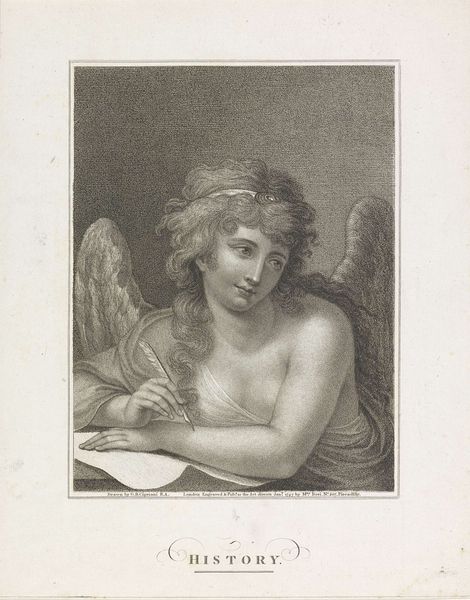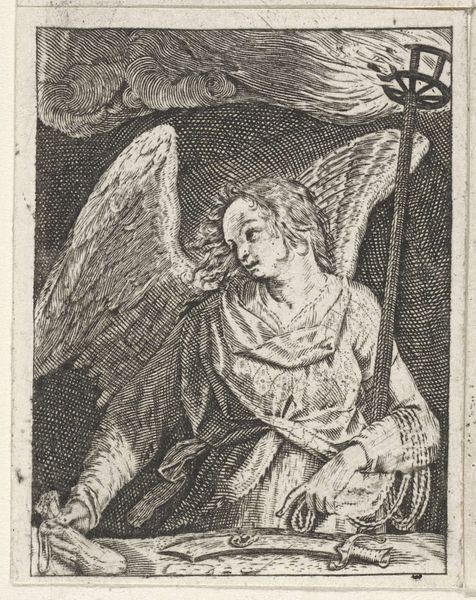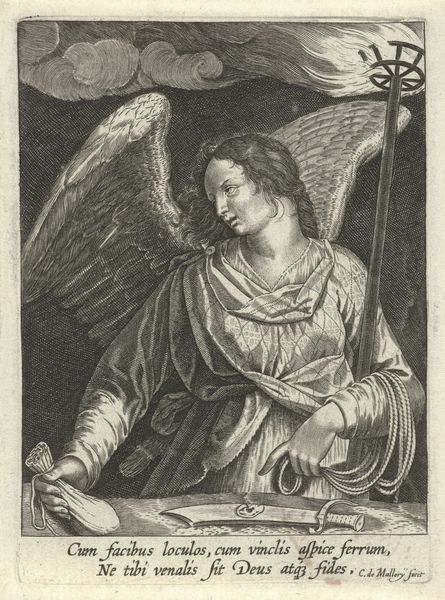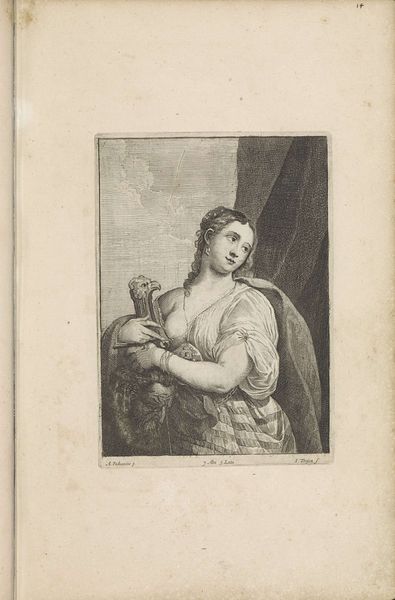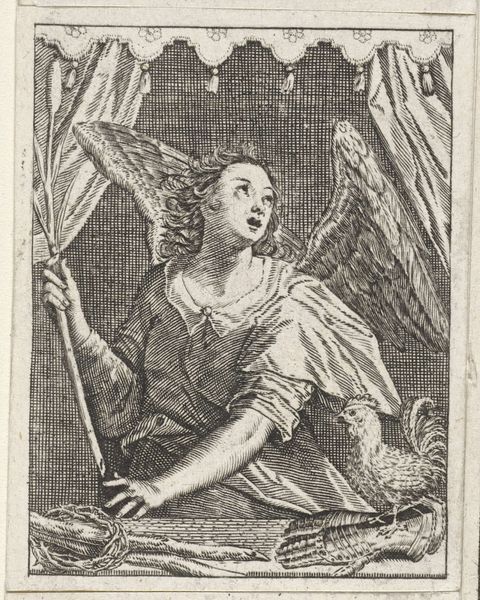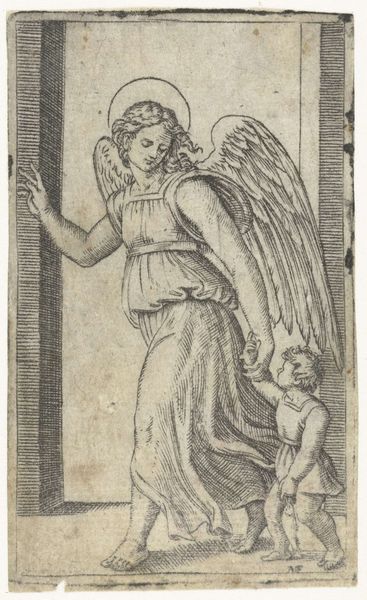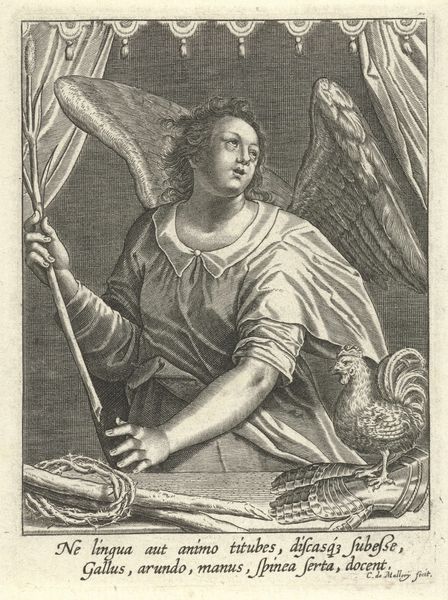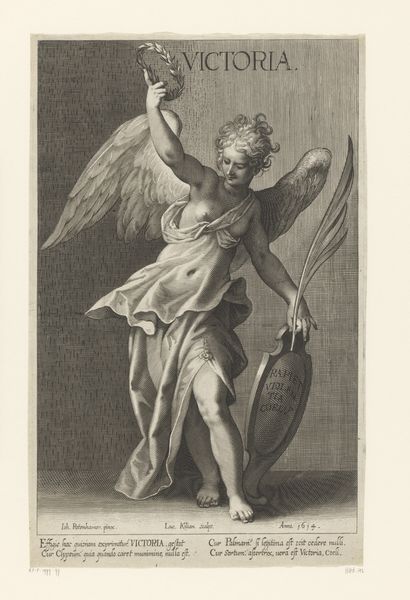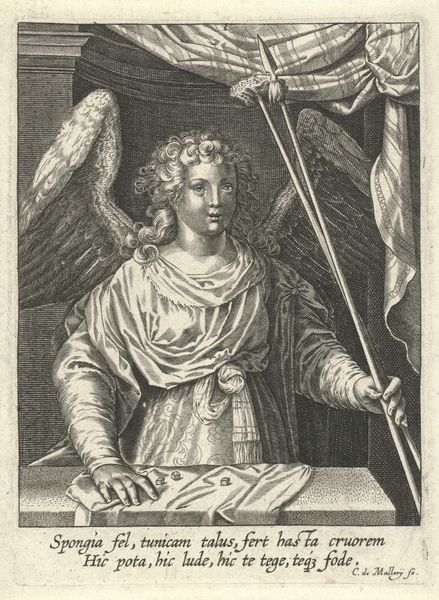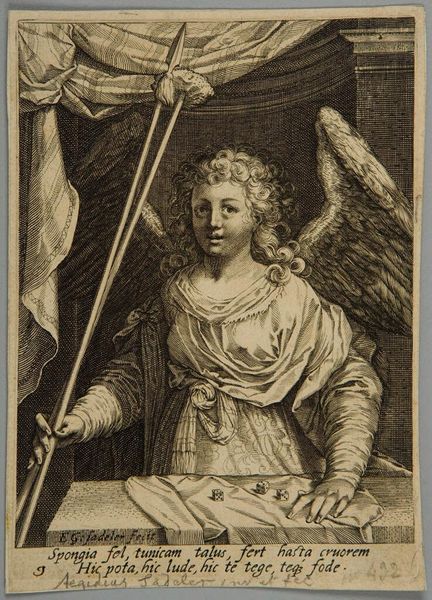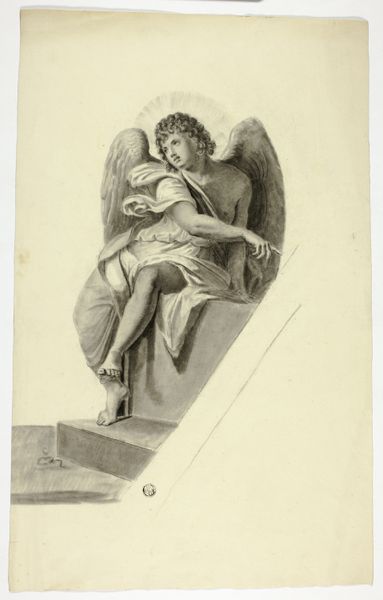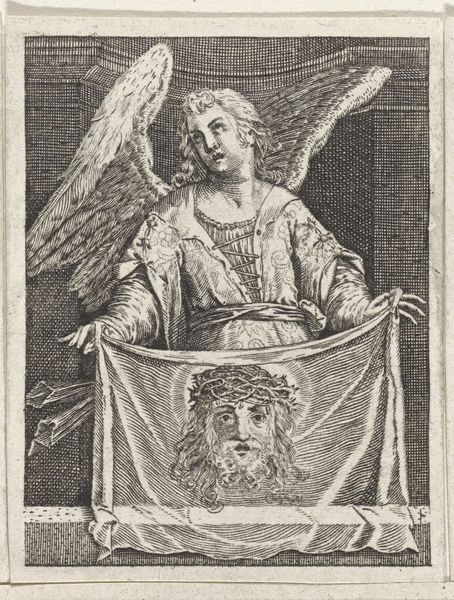
engraving
#
portrait
#
baroque
#
history-painting
#
engraving
Dimensions: height 166 mm, width 116 mm
Copyright: Rijks Museum: Open Domain
Lucas Vorsterman the Younger created this engraving of an angel with folded hands in the 17th century. During this period, the Dutch Republic was experiencing its Golden Age, a time marked by economic prosperity, artistic innovation, and cultural exchange. Vorsterman’s angel embodies the complex dynamics of identity and representation in religious art. Note the angel’s androgynous features, challenging traditional gender norms. This ambiguity invites us to reflect on the fluidity of identity and the diverse ways in which spiritual beings can be imagined. Engravings like this one were often reproduced and distributed widely, influencing popular piety. While seemingly traditional, the image subtly questions established norms, offering a glimpse into the evolving social and cultural landscape of the time. The angel’s serene yet melancholic expression evokes a sense of introspection, drawing viewers into a personal contemplation of faith, identity, and the human condition.
Comments
No comments
Be the first to comment and join the conversation on the ultimate creative platform.
